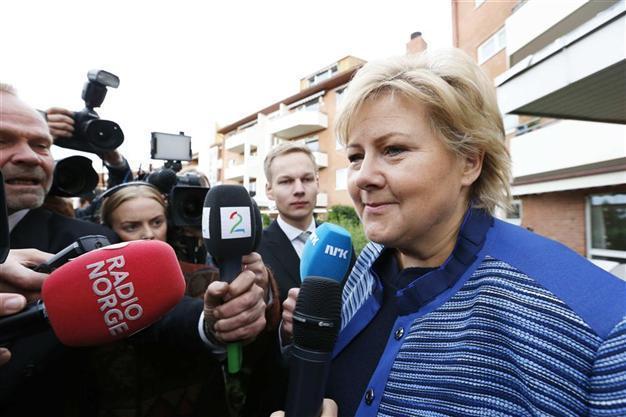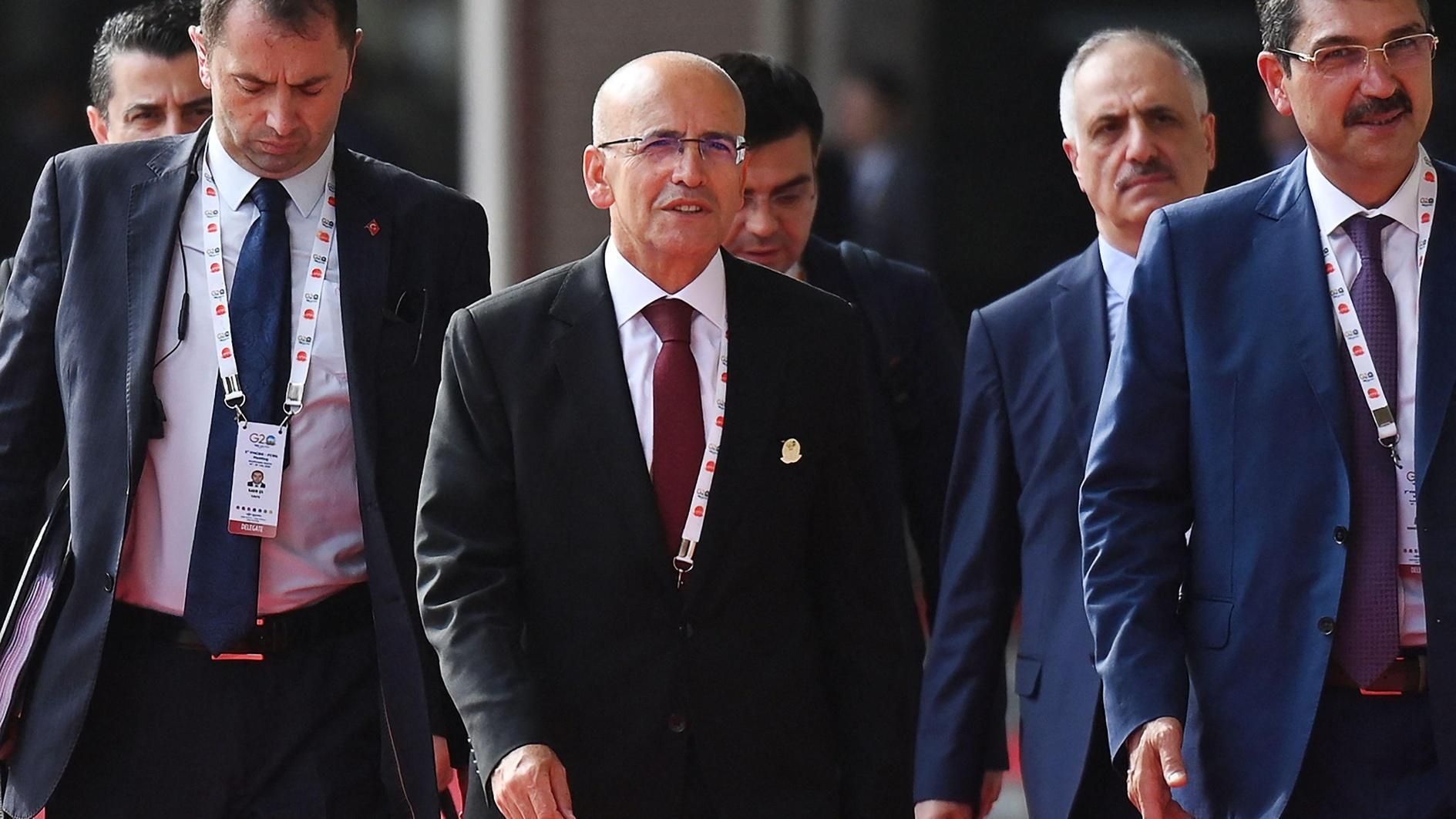Norway's poll winner faces uphill coalition struggle
OSLO - Agence France-Presse

Chairman of the Conservative Party in Norway, Erna Solberg, speaks with media personnel outside the block of flats where she lives in Oslo, September 10, 2013, the day after she and her party returned a resounding victory in the general elections. REUTERS/Lise Aserud/NTB Scanpix
Norway's election winner Erna Solberg on Tuesday faced an uphill struggle to cobble together a workable alliance set to include the anti-immigration right.The 52-year-old career politician, also known as "Iron Erna", led her Conservative Party to victory in Monday's vote alongside three other centre-right parties, putting an end to eight years of centre-left rule.
"We have had a meeting today with the centre-right party leaders and we have agreed to start exploring the possibilities for all parties to form a government," Solberg told reporters.
Earlier, she said it was generally understood that the four parties would have to compromise to work together.
"Everybody must negotiate. Everybody must give and take," she said.
A four-party centre-right bloc won 96 seats in the 169-seat parliament, while the incumbent three-party centre-left coalition ended up with 72 seats. An independent environmental party got one seat.
PM Stoltenberg to resign
Jens Stoltenberg of the Labour Party, Norway's prime minister since 2005, met with Norway's King Harald early Tuesday to announce his government would resign in mid-October, after presenting the national budget for next year.
He later told a press conference he was preparing to spend the next four years in opposition, although he did not rule out a return to power before the next election in 2017.
"If (the centre-right parties) don't manage to stay in power through the next four years, the Labour Party, being big, will be ready to assume a responsibility," said Stoltenberg, 54.
Solberg's challenge is to forge a government with the support of four parties that span Norway's political spectrum from the moderate centre to the populist, immigration-sceptic right.
"Erna Solberg has to reconcile the almost irreconcilable positions of very different parties," the daily Verdens Gang said in an editorial.
Monday's election was the first national poll since rightwing extremist Anders Behring Breivik's infamous 2011 rampage, which left 77 people dead and shocked the nation to the core.
Four Breivik survivors elected to Norway's parliament
OSLO - Agence France-Presse
Four young Norwegian Labour Party members who survived rightwing extremist Anders Behring Breivik's bloody rampage two years ago have been elected to parliament, the party said Tuesday.
They were among 33 Labour Party candidates in Monday's parliamentary election who had escaped Breivik's bullets on July 22, 2011, according to Anne Odden, spokeswoman for the party's parliamentary group.
The Labour Party lost nine seats in parliament to end up with 55, and is set to be ousted from government after eight years in power.
Breivik deliberately targeted Labour in his rampage, accusing the party of allowing Norway to become a multicultural society.
After setting off a bomb in Oslo's government district, killing eight people, Breivik travelled to a Labour Youth summer camp on the island of Utoeya near the Norwegian capital.
There he opened fire indiscriminately, killing 69 people, mostly adolescents, before being stopped by police.
Breivik was sentenced last year to the maximum penalty of 21 years in prison, a term that can be extended indefinitely if he is still considered a threat to society.
















